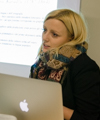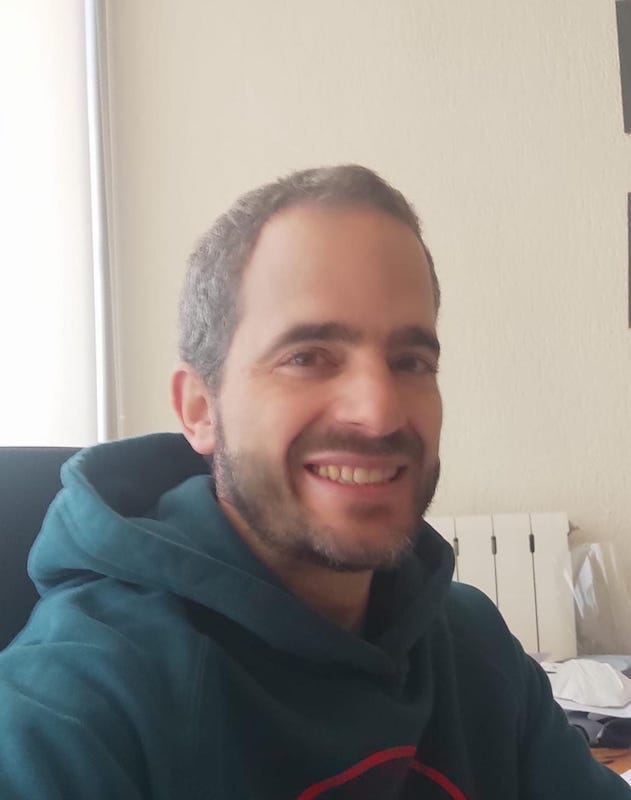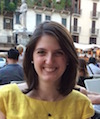Studying at the University of Verona
Here you can find information on the organisational aspects of the Programme, lecture timetables, learning activities and useful contact details for your time at the University, from enrolment to graduation.
Academic calendar
The academic calendar shows the deadlines and scheduled events that are relevant to students, teaching and technical-administrative staff of the University. Public holidays and University closures are also indicated. The academic year normally begins on 1 October each year and ends on 30 September of the following year.
Course calendar
The Academic Calendar sets out the degree programme lecture and exam timetables, as well as the relevant university closure dates..
| Period | From | To |
|---|---|---|
| Semester 1 | Oct 2, 2017 | Jan 20, 2018 |
| Semester 2 | Feb 26, 2018 | Jun 9, 2018 |
| Session | From | To |
|---|---|---|
| Winter session | Jan 22, 2018 | Feb 24, 2018 |
| Summer session | Jun 11, 2018 | Jul 28, 2018 |
| Autumn session | Aug 27, 2018 | Sep 22, 2018 |
| Session | From | To |
|---|---|---|
| LAUREE LINGUE - sessione autunnale a.a. 2016/2017 | Dec 18, 2017 | Dec 21, 2017 |
| LAUREE LINGUE - sessione invernale a.a. 2016/2017 | Mar 23, 2018 | Mar 29, 2018 |
| LAUREE LINGUE - sessione estiva | Jul 16, 2018 | Jul 21, 2018 |
| LAUREE LINGUE - sessione autunnale | Nov 12, 2018 | Nov 17, 2018 |
| LAUREE LINGUE - sessione invernale | Apr 12, 2019 | Apr 18, 2019 |
| Period | From | To |
|---|---|---|
| All Saints Day | Nov 1, 2017 | Nov 1, 2017 |
| Immaculate Conception | Dec 8, 2017 | Dec 8, 2017 |
| Christmas break | Dec 22, 2017 | Jan 7, 2018 |
| Easter break | Mar 30, 2018 | Apr 3, 2018 |
| Liberation Day | Apr 25, 2018 | Apr 25, 2018 |
| Labour Day | May 1, 2018 | May 1, 2018 |
| Patron Saint Day | May 21, 2018 | May 21, 2018 |
| Republic Day | Jun 2, 2018 | Jun 2, 2018 |
| Summer break | Aug 13, 2018 | Aug 18, 2018 |
Exam calendar
Exam dates and rounds are managed by the relevant Foreign Languages and Literatures Teaching and Student Services Unit.
To view all the exam sessions available, please use the Exam dashboard on ESSE3.
If you forgot your login details or have problems logging in, please contact the relevant IT HelpDesk, or check the login details recovery web page.
Academic staff

Bradas Marija
 marija.bradas@univr.it
marija.bradas@univr.it
 flavia.palma@univr.it
flavia.palma@univr.it
 sara.paolini@univr.it
sara.paolini@univr.it
Rodler Lucia
Study Plan
The Study Plan includes all modules, teaching and learning activities that each student will need to undertake during their time at the University.
Please select your Study Plan based on your enrollment year.
1° Year
| Modules | Credits | TAF | SSD |
|---|
1st foreign language2nd foreign language1st foreign literature 1 lm. forms, genres and critical approaches2nd foreign literature 1 lm. forms, genres and critical approaches2° Year activated in the A.Y. 2018/2019
| Modules | Credits | TAF | SSD |
|---|
A philology to be chosen among the following (philology must be related to one of the chosen languages)1st or 2nd foreign literature 2 lm. critical methodologies and textual interpretationHistory of the 1st or the 2nd foreign language1st foreign literature disciplinary area2nd foreign literature disciplinary area or textual and comparative studies| Modules | Credits | TAF | SSD |
|---|
1st foreign language2nd foreign language1st foreign literature 1 lm. forms, genres and critical approaches2nd foreign literature 1 lm. forms, genres and critical approaches| Modules | Credits | TAF | SSD |
|---|
A philology to be chosen among the following (philology must be related to one of the chosen languages)1st or 2nd foreign literature 2 lm. critical methodologies and textual interpretationHistory of the 1st or the 2nd foreign language1st foreign literature disciplinary area2nd foreign literature disciplinary area or textual and comparative studies| Modules | Credits | TAF | SSD |
|---|
Legend | Type of training activity (TTA)
TAF (Type of Educational Activity) All courses and activities are classified into different types of educational activities, indicated by a letter.
Modern and contemporary Austrian literature and culture (2018/2019)
Teaching code
4S002995
Academic staff
Coordinator
Credits
6
Language
German
Scientific Disciplinary Sector (SSD)
L-LIN/13 - GERMAN LITERATURE
Period
II semestre dal Feb 18, 2019 al Jun 1, 2019.
Learning outcomes
The early 20th century novel: Franz Kafka, Joseph Roth, Robert Musil
The course aims at presenting three representative novels from the early 20th century belonging to the literary canon of the Austrian and Middle-European culture: Franz Kafka’s „The Trial“ (Der Process), Joseph Roth’s „Job“ (Hiob) and Robert Musil’s „The Man without Qualities“ (Der Mann ohne Eigenschaften).
The various types of modern novel will be studied through the reading and commenting of the given texts, together with the narratologic and poetologic aspects typical of this genre.
At the end of the course students will have to prove:
- to have acquired a deep knowledge of the authors dealt with in class, of the proposed topics and of the literary works in programme
- a critical knowledge of the problems linked to the poetics of the 20th century novel
- to have developed specific competences in literary text analysis
- to have developed the ability to convey their knowledge through a suitable competence in German.
Program
The course is structured in a single module (lectures and seminars) and is entirely held in German.
After a short introduction on the life and works of the authors in programme, the course will focus on the following topics, which will be discussed through commenting on the novels and the reading of chosen passages:
• fragment-novel and parable (Kafka)
• novel and fairy-tale (Roth)
• essay-novel (Musil)
• the poetics of modern novels in Austrian literature.
Bibliography:
Texts in German:
F. Kafka, Der Process (1914, published posthumously) (we suggest the critical edition: Kritische Ausgabe, Fisher, edited by M. Pasley)
J. Roth, Hiob (1930)
Juden auf der Wanderschaft (1937)
R. Musil, Der Mann ohne Eigenschaften, Erstes Buch (1930): Erster Teil - eine Art Einleitung (Kap. 1-19); Kap. 59-62. (we suggest to read the first book entirely).
Critical works:
A list of critical works will be provided at the beginning of the course.
| Author | Title | Publishing house | Year | ISBN | Notes |
|---|---|---|---|---|---|
| David E. Wellbery | Eine neue Geschichte der deutschen Literatur | WBG | 2013 | 978-3-650-40035-2 |
Examination Methods
The final exam will be oral and held in German. The oral exam will be on the whole programme and it will consist in a conversation aimed at testing:
- the depth and wideness of the acquired knowledge
- the ability to analyse and understand the literary texts in the programme
- the argumentative ability and the ability to link knowledges in a critical-literary reflection on the poetics of modern novels
- the ability to convey the acquired knowledges in German.
The final mark will be in 30ths.
ERASMUS students are required to contact the teacher at the beginning of the course to agree upon the exam modality.
During the course students will have to present short papers.
Type D and Type F activities
To discover all the teaching activities accredited by the foreign teaching college click here
Career prospects
Module/Programme news
News for students
There you will find information, resources and services useful during your time at the University (Student’s exam record, your study plan on ESSE3, Distance Learning courses, university email account, office forms, administrative procedures, etc.). You can log into MyUnivr with your GIA login details: only in this way will you be able to receive notification of all the notices from your teachers and your secretariat via email and soon also via the Univr app.
Student login and resources
Gestione carriere
Attività accreditate D/F
Calendario didattico dettagliato
Competenze linguistiche (prima e seconda lingua)
Language skills
Compilazione del piano didattico
Corso di Lingua portoghese
Double degree
The University of Verona, through a network of agreements with foreign universities, offers international courses that enable students to gain a Double/Joint degree at the time of graduation. Indeed, students enrolled in a Double/Joint degree programme will be able to obtain both the degree of the University of Verona and the degree issued by the Partner University abroad - where they are expected to attend part of the programme -, in the time it normally takes to gain a common Master’s degree. The institutions concerned shall ensure that both degrees are recognised in the two countries.
Places on these programmes are limited, and admissions and any applicable grants are subject to applicants being selected in a specific Call for applications.
The latest Call for applications for Double/Joint Degrees at the University of Verona is available now!
Documents
| Title | Info File |
|---|---|
|
|
pdf, it, 316 KB, 28/09/23 |
|
|
octet-stream, it, 22 KB, 28/09/23 |
|
|
pdf, it, 520 KB, 28/09/23 |
Erasmus+ e altre esperienze all'estero
Linguistic training CLA
Percorso verso l'insegnamento
Una delle possibilità per gli studenti dopo il conseguimento della laurea magistrale è l’insegnamento nella scuola: l’Università degli Studi di Verona è tra gli enti accreditati dal MIUR per l'erogazione di corsi di formazione e aggiornamento e qualificazione delle competenze per insegnanti. Il percorso per diventare insegnante è legato alle seguenti condizioni:
1a CONDIZIONE
Il possesso della laurea magistrale o a ciclo unico, oppure diploma di II livello dell’alta formazione artistica, musicale e coreutica, oppure titolo equipollente o equiparato, coerente con le classi di concorso vigenti alla data di indizione del concorso; il futuro insegnante dovrà, inoltre, soddisfare i requisiti di accesso previsti per la classe di concorso scelta.
Per le classi di concorso:
- A-24 (Lingue e culture straniere negli istituti di istruzione secondaria di II grado) e
- A-25 (Lingua inglese e seconda lingua comunitaria nella scuola secondaria I primo grado)
sono previsti i seguenti requisiti di accesso (vedi l’allegato A al DM 259/2017):
1) 18 CFU nei settori scientifico disciplinari L-LIN/01 e/o L-LIN/02
2) 36 CFU della lingua di specializzazione scelta
3) 24 CFU della letteratura relativa alla lingua di specializzazione scelta.
I requisiti specifici delle classi di concorso A-24 e A-25 possono essere soddisfatti nell’ambito dei piani didattici o negli esami a scelta libera superati all’interno del percorso di studio universitario (Laurea Triennale e Magistrale), oppure attraverso l’iscrizione a corsi singoli.
Il requisito relativo alla lingua di specializzazione (2) è soddisfatto (sulla base degli esami previsti nel piano didattico) nell’ambito del percorso formativo che comprende una laurea triennale dell’area di Lingue e Letterature Straniere, seguita da una laurea magistrale della medesima area (qualsiasi Corso di Laurea triennale e magistrale dell’area di Lingue e Letterature Straniere).
Per verificare i requisiti relativi alla letteratura di specializzazione (3) e agli insegnamenti di linguistica che appartengono ai settori scientifico-disciplinari di L-LIN/01 e L-LIN/02 (1), invece, gli studenti sono invitati a consultare il proprio piano didattico per verificare il numero di CFU previsti nel percorso formativo.
2a CONDIZIONE
Il possesso dei 24 crediti formativi universitari o accademici acquisiti in forma curricolare, aggiuntiva o extra curricolare nelle discipline antropo-psico-pedagogiche e nelle metodologie e tecnologie didattiche, garantendo comunque il possesso di almeno 6 CFU conseguiti in ciascuno di almeno tre dei seguenti quattro ambiti disciplinari:
1) pedagogia;
2) pedagogia speciale e didattica dell’inclusione;
3) psicologia; antropologia;
4) metodologie e tecnologie didattiche.
Percorso formativo 24 CFU
Consente di acquisire uno dei requisiti di partecipazione al concorso nazionale per l’accesso al “percorso annuale di formazione iniziale e prova” su posti comuni e di sostegno, ai sensi del D.Lgs 13 aprile 2017, n. 59 come modificato dalla legge n.145 del 30/12/2018 (c. dal 792 al 796).
I settori scientifico disciplinari, gli obiettivi formativi, le modalità organizzative e gli eventuali costi sono stati stabiliti dal D.M. 10 agosto 2017, n. 616.
Per sapere quali insegnamenti della propria carriera vengano automaticamente riconosciuti si rimanda alla pagina del sito di Ateneo dedicata al percorso formativo 24 CFU.
Si consiglia agli interessati di consultare la pagina https://www.univr.it/it/i-nostri-servizi/futuri-studenti/post-laurea/formazione-degli-insegnanti in costante aggiornamento, in particolare sezione documenti in cui vengono pubblicati formulari, programmi degli insegnamenti ed elenchi di studenti ammessi.
Tra gli insegnamenti automaticamente riconosciuti nell’ambito dei 24 CFU vi sono: Insegnamento delle lingue (L-LIN/02) e Apprendimento delle lingue (L-LIN/02), previsti nel piano didattico del curriculum Linguistico-didattico del CdS di Lingue e letterature straniere (LLS).
Gli studenti immatricolati nel CdS di LLS che hanno scelto i curricula Letterario e Artistico possono comunque inserire tali insegnamenti nel piano di studi come crediti D (a scelta libera).
Gli studenti immatricolati negli altri CdS triennali del Dipartimento di Lingue e letterature straniere (Lingue e culture per il turismo e il commercio internazionale; Lingue e culture per l’editoria [a esaurimento]; Lingue e letterature per l’editoria e i media digitali) posso inserire tali insegnamenti nella propria carriera solo su eventuale autorizzazione preventiva del Presidente del Collegio Didattico (mediante Help desk).
Il soddisfacimento della 1a e 2a condizione è requisito obbligatorio per partecipare ai concorsi di abilitazione o specifici percorsi post lauream previsti dal Ministero.
Graduation
Stage e tirocini
Le attività di stage sono finalizzate a far acquisire allo studente una conoscenza diretta in settori di particolare interesse per l’inserimento nel mondo del lavoro e per l’acquisizione di abilità professionali specifiche.
Le attività di stage sono svolte sotto la diretta responsabilità di un singolo docente presso studi professionali, enti della pubblica amministrazione, aziende accreditate dall’Ateneo veronese.
I crediti maturati in seguito ad attività di stage saranno attribuiti secondo quanto disposto nel dettaglio dal “Regolamento d’Ateneo per il riconoscimento dei crediti maturati negli stage universitari” vigente.
- Tutte le informazioni in merito agli stage per futuri studenti sono disponibili alla pagina Stage e tirocini.
- Tutte le informazioni in merito agli stage per studenti iscritti sono pubblicate in MyUnivr - come fare per - stage e tirocini.
- Tutte le informazioni in merito agli stage per le aziende sono disponili alla pagina Stage e tirocini per azienze.
Ulteriori informazioni al seguente link https://www.univr.it/it/i-nostri-servizi/gestione-carriere-studenti-lingue-e-letterature-straniere/stage-e-tirocini-lingue-e-letterature-straniere

 +39 045802 8409
+39 045802 8409

























